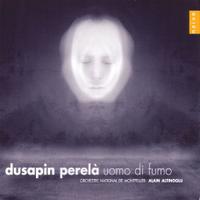| Record companies, artists and publicists are invited to submit CDs to be considered for review. Send to: Jerry Bowles, Editor, Sequenza 21, 340 W. 57th Street, 12B, New York, NY 10019 |
Latest Posts
Ernst Pepping and Allan Pettersson: Moral Dilemmas in Symphonic Music
"The numbers all go to eleven. Look, right across the board, eleven, eleven, eleven and... "
Tell the Birds
Soundtrack to an Apocalypse
Feast Your Ears: New Music for Piano
Gone For Foreign
Fred Lerdahl: Time After Time
Nothing Sacred
Two From Wayne Horvitz
Two Fresh Cantaloupes
Record companies, artists and publicists are invited to submit CDs to be considered for our Editor's Pick's of the month. Send to: Jerry Bowles, Editor, Sequenza 21, 340 W. 57th Street, 12B, New York, NY 10019



|
Archives
Saturday, December 18, 2004
Saturday, December 25, 2004
Friday, December 31, 2004
Wednesday, January 05, 2005
Monday, January 10, 2005
Thursday, January 13, 2005
Thursday, January 20, 2005
Sunday, January 23, 2005
Monday, January 24, 2005
Saturday, January 29, 2005
Wednesday, February 02, 2005
Thursday, February 03, 2005
Monday, February 07, 2005
Tuesday, February 08, 2005
Friday, February 11, 2005
Monday, February 14, 2005
Wednesday, February 16, 2005
Tuesday, February 22, 2005
Monday, February 28, 2005
Sunday, March 06, 2005
Monday, March 07, 2005
Wednesday, March 09, 2005
Sunday, March 13, 2005
Friday, March 18, 2005
Monday, March 28, 2005
Saturday, April 02, 2005
Monday, April 11, 2005
Sunday, April 17, 2005
Tuesday, April 19, 2005
Monday, April 25, 2005
Monday, May 02, 2005
Monday, May 09, 2005
Tuesday, May 17, 2005
Tuesday, May 31, 2005
Monday, June 06, 2005
Thursday, June 16, 2005
Sunday, June 19, 2005
Sunday, July 10, 2005
Wednesday, July 13, 2005
Sunday, July 24, 2005
Friday, July 29, 2005
Monday, August 08, 2005
Monday, August 22, 2005
Wednesday, August 24, 2005
Friday, September 16, 2005
Sunday, September 25, 2005
Tuesday, October 04, 2005
Tuesday, October 18, 2005
Monday, October 24, 2005
Tuesday, November 01, 2005
Monday, November 07, 2005
Saturday, November 12, 2005
Wednesday, November 16, 2005
Tuesday, November 29, 2005
Friday, December 16, 2005
Monday, January 09, 2006
Thursday, January 12, 2006
Thursday, January 19, 2006
Tuesday, January 24, 2006
Thursday, February 02, 2006
Monday, February 13, 2006
Wednesday, February 15, 2006
Wednesday, March 01, 2006
Sunday, March 19, 2006
Sunday, March 26, 2006
Friday, March 31, 2006
Sunday, April 09, 2006
Monday, April 10, 2006
Thursday, April 20, 2006
Friday, April 21, 2006
Thursday, May 11, 2006
Thursday, May 18, 2006
Saturday, May 20, 2006
Friday, June 02, 2006
Tuesday, June 06, 2006
Friday, June 16, 2006
Monday, June 19, 2006
Sunday, June 25, 2006
Monday, June 26, 2006
Monday, July 10, 2006
Thursday, July 13, 2006
Thursday, July 20, 2006
Friday, July 21, 2006
Sunday, July 23, 2006
Thursday, August 03, 2006
Wednesday, August 09, 2006

|
|
Wednesday, August 24, 2005
Naive: Perelà, Uomo di fumo / Pascal Dusapin
 In 2003 L’Opéra National de Paris-Bastille premiered Pascal Duspain’s fourth and most ambitious opera to date: Perelà: Uomo di fumo (“Perelà: the Man of Smoke”). Later that same year Naive made a live recording of the work at L’Opéra National de Montpellier, and twenty-first century opera lovers can now get their hands on this major work. In 2003 L’Opéra National de Paris-Bastille premiered Pascal Duspain’s fourth and most ambitious opera to date: Perelà: Uomo di fumo (“Perelà: the Man of Smoke”). Later that same year Naive made a live recording of the work at L’Opéra National de Montpellier, and twenty-first century opera lovers can now get their hands on this major work.
Dusapin himself adapted the libretto from a story by the early twentieth century Italian writer Aldo Palazzeschi. It concerns the strange messianic appearance and disappearance of a man, Perelà, who is literally made out of smoke. At first taken in and idolized by the citizens of a local town, he is eventually accused of causing the death of the King’s butler, Alloro. Alloro in fact kills himself in a fire while trying to become like Perelà. Perelà is subsequently sentenced to lifetime imprisonment, but, in the last scene, dematerializes into the void from which he sprang.
Running about two hours and divided into ten “chapters,” “Perelà” boasts many fine qualities. The vocal writing, syllabic and very close to the rhythms of speech, defines each character vividly: the enigmatic and aloof Perelà, the impassioned and melancholy Bellonda (who tries to defend Perelà), the hysterical Queen, and the swarm of royal bureaucrats are all roles filled with opportunities for singers to stretch their acting abilities.
Dusapin places these figures atop a continuous bed of mysterious, sustained sound which flows elegantly from the murky and ominous to the light and ethereal. “Perelà” is unusual for a contemporary opera in its practicality: neither the orchestral nor the vocal writing struck me as especially fatiguing or complicated. Dusapin prefers to sustain a few musical ideas into languorous textures rather than bombard us with complexity.
Yet it’s all a bit tepid. Particularly in the opera’s first four chapters, the scenes carry little dramatic pull, and the real conflict of the story (that involving Alloro) seems unnecessarily delayed in retrospect. Dusapin’s music, while often beautiful (particularly Bellonda’s chapter five trio with the English horn and harpsichord, and Perelà’s final ferocious apostrophe), is also bland for long stretches at a time.
For all its faults, though, one wishes City Opera would take on projects like this one instead of “The Little Prince.”
posted by David Salvage
3:33 PM
|
|




